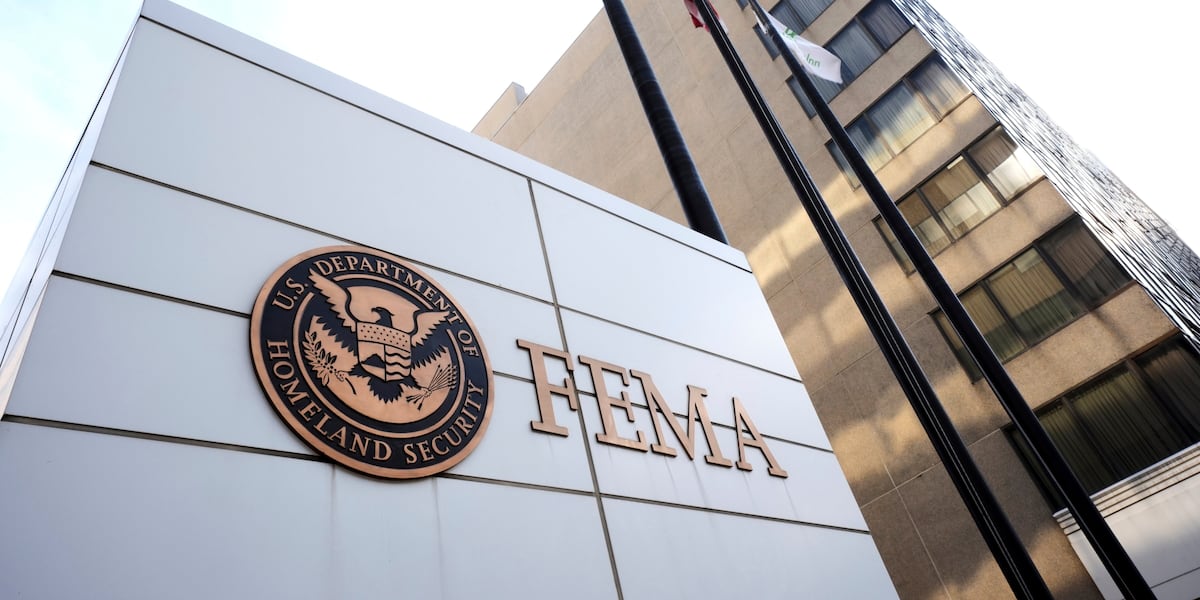HARTFORD, CT (WFSB) – Connecticut won a court order that prohibits the Trump administration from forcing states to conduct immigration enforcement under the threat of withholding federal disaster help.
Connecticut Attorney General William Tong announced the victory on Thursday.
Tong said the administration threatened to withhold funding for emergency preparedness and preventing and addressing terrorist attacks, mass shootings, wildfires, floods, cybersecurity threats and more.
The district court for the District of Rhode Island on Wednesday granted a motion for summary judgement filed by Tong and 20 attorneys general in their lawsuit against the Federal Emergency Management Agency and the Department of Homeland Security.
In its opinion, Tong said the court held that the agencies violated the U.S. Constitution and the Administrative Procedure Act by conditioning all federal funds from FEMA and DHS on states’ agreement to assist in enforcing federal immigration law.
“You cannot play politics with disaster relief, not with lives and communities on the line,” Tong said. “We sued, and this decision is a decisive victory for public safety and our sovereign states. This decision states unequivocally that Donald Trump’s baseless actions were once again arbitrary and capricious (the same legal smack down we just saw in the Revolution Wind win) and that he had zero authority to override the will of Congress. We’re going to keep fighting and we’re going to keep winning to stop Trump from defunding our states.”
Tong said that in February, U.S. Secretary of Homeland Security Kristi Noem directed DHS and its sub-agencies, including FEMA, to cease federal funding to jurisdictions that do not assist the federal government in the enforcement of federal immigration law.
In March, DHS amended the terms and conditions it places on all federal funds to require recipients to certify that they will help in enforcing federal immigration law. The sweeping new conditions required states and state agencies to cooperate with federal immigration enforcement efforts or lose out on billions of federal dollars that states use to protect public safety.
Tong said that in the new decision, the court agreed that DHS violated the Administrative Procedure Act in adding the conditions, including because the agency failed to consider public safety in doing so and because the conditions are overly broad and ambiguous.
Tong and the other attorneys general argued that the immigration conditions exceeded DHS’s legal authority and violated the Constitution because the programs in question were established to help states prepare for, protect against, respond to and recover from catastrophic disasters, not for immigration-related purposes.
The district court agreed, and held that imposing the condition on all DHS and FEMA programs, regardless of the purpose of those programs, was unlawful.
Tong said that since 2021, Connecticut has received more than $1.2 billion from FEMA to prevent, protect against, and respond to flooding and other natural disasters, terrorism, mass casualty events, and other catastrophes.
Also involved in the suit were the attorneys general of California, Illinois, New Jersey, and Rhode Island, was joined by the attorneys general from Colorado, Connecticut, the District of Columbia, Delaware, Hawaii, Maine, Maryland, Massachusetts, Michigan, Minnesota, Nevada, New Mexico, New York, Oregon, Washington, Wisconsin, and Vermont.
Copyright 2025 WFSB. All rights reserved.
